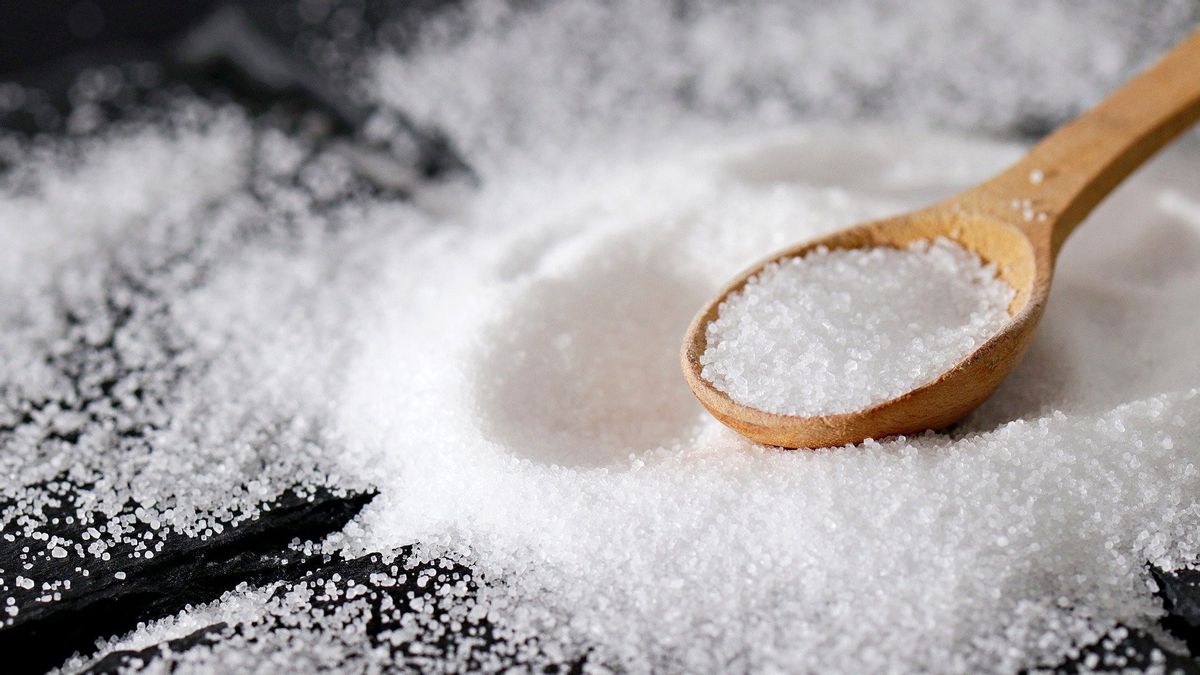JAKARTA - Consumption of foods with a salt content that is too high is at risk of causing various diseases such as hypertension that can lead to various degenerative diseases such as hypertension, stroke, to heart failure.
On the other hand, if there is a deficiency, then the effect is impaired muscle and nerve function, impaired blood sugar control, and others.
Professor of Food Safety & Nutrition, Faculty of Human Ecology (FEMA), Bogor Agricultural University (IPB), Prof. Ahmad Sulaeman said one of the tips for a low-salt diet is to use salt alternatives.
This is to prevent degenerative diseases, such as diabetes, heart disease, and hypertension, in order to create a healthy life.
"Replace the salt with umami seasoning with a sufficient amount," said Professor Ahmad as reported by Antara, Monday, November 15.
Another strategy to reduce salt intake in daily consumption is to choose foods that are low in seasoning or even without sodium.
"Limit processed foods that are high in sodium or processed foods, for example, cured, smoked or even salted," he said.
However, Professor Ahmad reminded that salt should not be removed from daily consumption because the body still needs salt intake to maintain the electrolyte balance in the body.
Umami taste is the fifth basic taste found after salty, sweet, sour, bitter, which we usually know as savory taste.
The umami taste can be found from various food ingredients such as mushrooms, tomatoes, shrimp paste, and others, because it contains the amino acid glutamate.
"Taste enhancers, such as monosodium glutamate, MSG are also a source of umami taste. The use of MSG in a nutritionally balanced diet can be a strategy to create healthy, delicious, and nutritious food for us and our families to enjoy to stay fit," said Professor Ahmad.
Apart from being a low-salt diet strategy, Professor Ahmad revealed that the use of umami spices such as MSG in cooking also has various other benefits such as increasing appetite while increasing daily performance, improving the digestion of protein foods, and being able to increase the production of saliva (saliva) which plays a role in helping the process of digestion. digestion of complex compounds in the mouth, so that when they are in the stomach they are easily absorbed by the body.
Meanwhile, the health expert and General Chair of the Indonesian Food Association, Professor Hardinsyah, said that MSG could be used as an alternative to salt in order to reduce salt intake.
"Many studies abroad, such as in Japan, show that the use of MSG can be a low-salt diet strategy. Because the sodium content in MSG is only a third of the sodium content in ordinary table salt," he said.
A low-salt diet is considered to increase the body's immunity because it can suppress factors that trigger degenerative diseases such as hypertension.
To maintain immunity during the coronavirus (COVID-19) pandemic, Professor Ahmad advised maintaining a healthy lifestyle by exercising regularly, and avoiding smoking and drinking alcohol.
Limitation
Prof. Ahmad suggested that the dose of umami seasoning such as monosodium glutamate, MSG, as a substitute for salt was 0.2 to 0.8 percent of the food volume.
"For example, for one liter of soup, just add the tip of a spoon. So if you want a salt diet, you can add one gram of salt," said Professor Ahmad.
According to Ahmad, MSG consists of 78 percent glutamic acid, 12 percent sodium, and 10 percent water, and is a nutrient. Glutamic acid is widely contained in our daily food ingredients such as eggs, fish, meat, and vegetables.
SEE ALSO:
"MSG is not a dangerous chemical element. The raw material is from molasses through a fermentation process," he said.
According to him, MSG is also good as a substitute for salt because it can make food have a high taste, but low salt.
"The sodium content in MSG is only a third of the sodium content in normal table salt, and there have also been many previous studies that have proven that the use of MSG is beneficial to help reduce salt intake but still maintain the palatability of the food," said Professor Ahmad.
Previously, the General Chair of PDGKI (Association of Indonesian Clinical Nutrition Specialists), Prof. dr. Nurpudji A. Taslim said the safe limit for MSG consumption is 10 mg per kg of body weight.
So, someone weighing 60 kilograms should not consume more than 6 grams of flavoring or one teaspoon per day.
According to Nurpudji, you can consider the food to be eaten. If the food contains a lot of glutamate, then MSG should not be used.
A number of foods are known to contain natural glutamate, including: cheese, milk, mushrooms, beef, and fish.
A low-salt or low-sodium diet can reduce the potential for high blood pressure, chronic kidney disease and improve overall diet quality. This diet can also reduce the risk of stomach cancer. However, too little sodium can have negative health effects, and this type of diet is unnecessary for most people.
If you follow a low-sodium diet, choose fresh foods and avoid salty foods. Cooking more meals at home is another great way to control salt intake.
The English, Chinese, Japanese, Arabic, and French versions are automatically generated by the AI. So there may still be inaccuracies in translating, please always see Indonesian as our main language. (system supported by DigitalSiber.id)


















